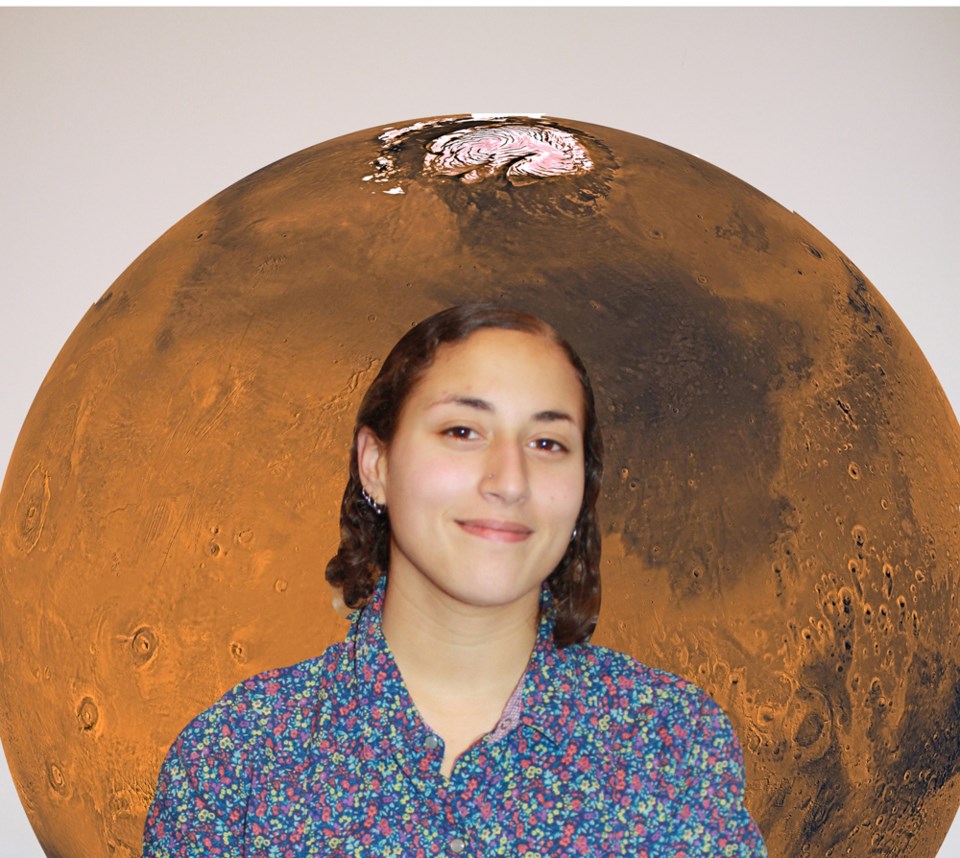Is there life on Mars?
There may be soon enough, thanks to a crowd-funded plan to send humans to the red planet by 2025, and Burnaby’s Maiesha Abdelmoula could be part of the private mission.
The Mars One project plans to send crews of four people every four years, starting in 2024, to set up a permanent settlement on Mars, and Abdelmoula has made the top 1,000 list from the first international round of 250,000 applicants.
“It gets more and more real every day,” Abdelmoula said in a phone interview while in Ontario, where she’s studying environmental design. “This is a really big deal.”
While she hasn’t made the final cut yet, if selected, Abdelmoula would likely go through training in 2015. The plan is to launch a series of unmanned missions to Mars to drop off a satellite, a rover, living units and supplies before the first group of people depart in 2024 and arrive roughly seven months later.
Abdelmoula thinks she was selected because her area of study focuses on how humans intertwine with their natural environment, and she hopes she can apply her urban planning skills on Mars.
“It’s basically more like systems planning and using basic concepts you would integrate there,” she told the NOW.
But what would life on Mars look like? According to Abdelmoula, settlers would have to draw on ice as their main source of water and oxygen, and there would be greenhouses to grow food. Living in an extreme environment can be difficult on people, both physically and mentally, but Abdelmoula thinks she up for it.
“It’s obviously going to be trying,” she said. “Just the idea that you are confined to such a specific space – although it will be expanded as time goes on.”
Abdelmoula also describes herself as headstrong and passionate – if she wants something, she goes after it and gets it.
“My drive is making sure that we can integrate ourselves into the environment, without basically causing detriment,” she said.
Each four-person mission would costs approximately US $4 billion, and the team behind Mars One is working on securing investments for the entire project, including the initial planning.
But signing up for a pioneering mission to Mars is not something you can back out of if you change your mind. Applicants who actually make it to our sister planet will not be coming back. It’s a one-way ticket.
“It’s obviously nerve wracking,” Abdelmoula said. “(But) how many people get an opportunity to live on two planets in one lifetime?”
For more information, or to donate to Mars One the settlement, go to www.mars-one.com.



